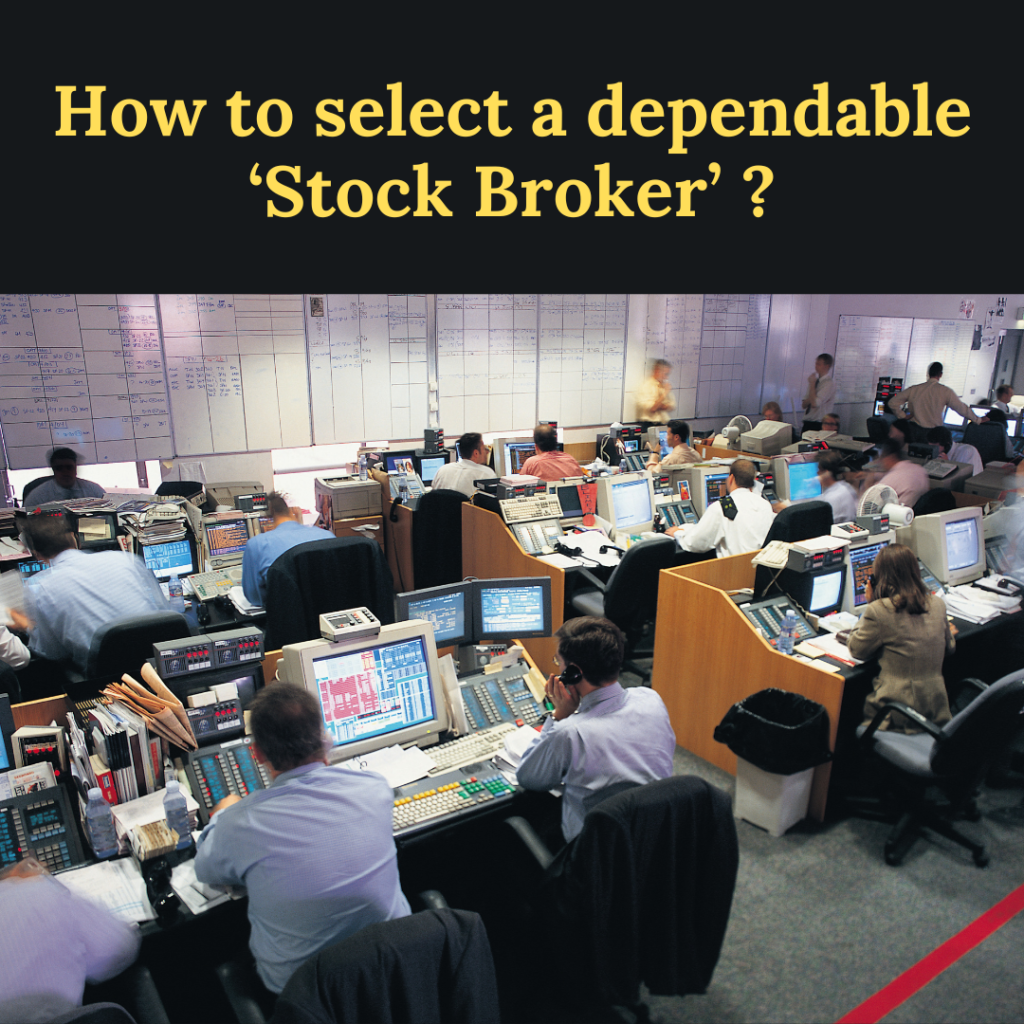
The stock market in India has been witnessing a substantial influx of new investors in the past few years. There is also a major shift happening in the stock broking landscape, with the spike in discount brokers. So, the major question that comes to our mind is that – “How should new investors select a stockbroker, that too at a time when the broking landscape is witnessing evolving changes?”
So, in this blog article, we will attempt to examine what are all the important points that we need to keep in mind while picking a stock broker:
1. Financial steadiness:
Analyse the broker’s financial statements. The stockbroker must have sufficient net worth. Regulators and stock exchanges do have minimum net worth requirements for the stock brokers. A higher net worth may imply a more financially solid organization. The stock broker’s balance sheet should be strong enough to sustain its range of operations. It should also have efficient risk oversight in terms of margins to avoid going bankrupt during volatile market conditions.
2. Clear track record:
Choose a regulatory-compliant broker. The broker must have experience handling many market cycles in a honest and open manner.

3. Quality of platform:
The broking platform should be simple to use and have an established track record of reliability. It should have serviced a sufficient number of clients to ensure stability and performance that’s scalable. The platform should be designed such that it is suited for all types of participants, whether they are retail traders or professional traders that place large quantities of trades every day. Aside from that, the platform should be agile and provide tools for users who rely on technical analysis. The speed with which trade orders are executed is also an important aspect when choosing a platform. Younger long-term investors like to conduct their own research on companies and mutual funds. They choose brokers that provide adequate information to assist them with this task as well.
4. Investors’ safety:
The safety of holdings is another key consideration for investors. But as the stock holdings of investors in a demat account are held in the central securities depositories (NSDL and CDSL), which ensures the safekeeping of the securities in demat accounts. This mitigates the potential risk of the broking platforms going bust, as the holdings of investors are being held safe by these depositories. We may think that whether these depositories are safe. These depositories are semi-government and come under the jurisdiction of Ministry of Finance of Government of India. Hence we can count on the government overseeing of our holdings.
5. Quality customer support:
Professional traders, as compared to positional traders, require rapid assistance from the broker’s customer care team. If they encounter challenges such as order rejection, they require a quick remediation from the broker’s support team, as the money involved is generally huge. Additionally, customer service representatives must be competent enough to remediate the platform issues swiftly. We have seen in the past that some brokers’ customer service has deteriorated as their business grew.

6. Pricing of trades:
With the advent of large number of discount brokers in the brokerage space, pricing war is making investors beneficial, as the cost of taking trades are currently at all-time lows, when compared to the costs some 10 to 15 years ago. However, retail investors and traders should be cautious on the costs of trades (sometimes there may be hidden costs or the costs that we fail to understand), and hence should trade diligently (trade here means not intraday, as I am a clearly not a supporter of intraday trading for retail investors!).
Having seen the pointers that we need to discuss upon, we also need to watch out for the below mentioned red flags as well:
- Beware of brokers who advocate inappropriate investments. If a broker suggests penny stocks or option trading to a new investor, these are warning flags.
- Some brokers give frequent notifications and stock recommendations to encourage users to trade more. Be aware of such attempts from your broker.
- Avoid brokers with a history of unethical business activities or attempts to dodge SEBI restrictions.
- Before choosing a broker, read the broker app’s reviews, ratings and social media comments. Going through reviews nowadays allows one to discover about most concerns related to a broker, such as the inability of their trading software, site downtime, and delayed payments (these are signs that the broker may be having financial difficulties).
- Investors should check NSE’s website for complaints filed against brokers before making a decision to select a broker.
- Though some brokers provide high leverage for derivatives trading, I do not propose for the retail investors or retail traders to trade in F&O segment, because, as Warren Buffett has rightly said, “Derivatives are the financial weapons of mass destruction of your wealth”.





